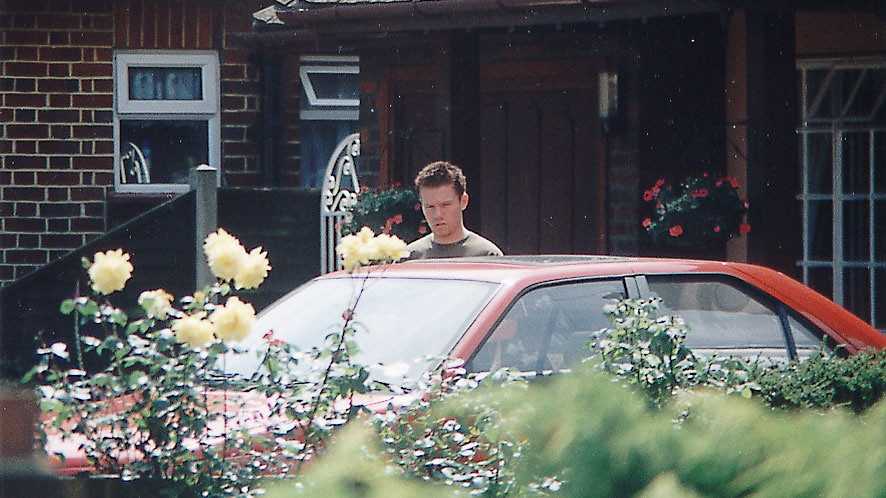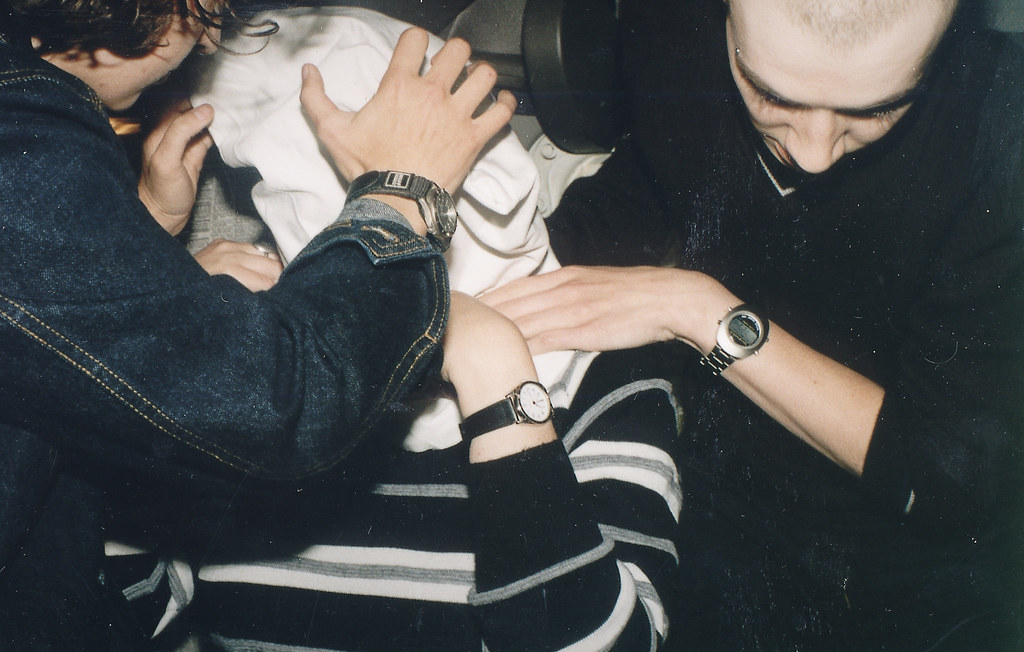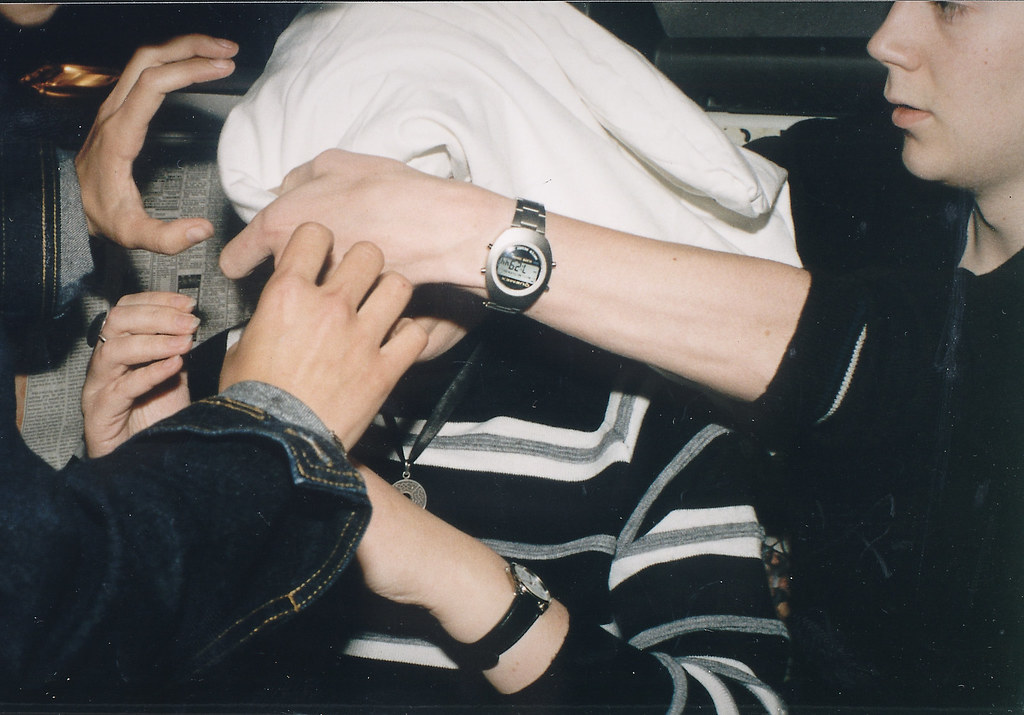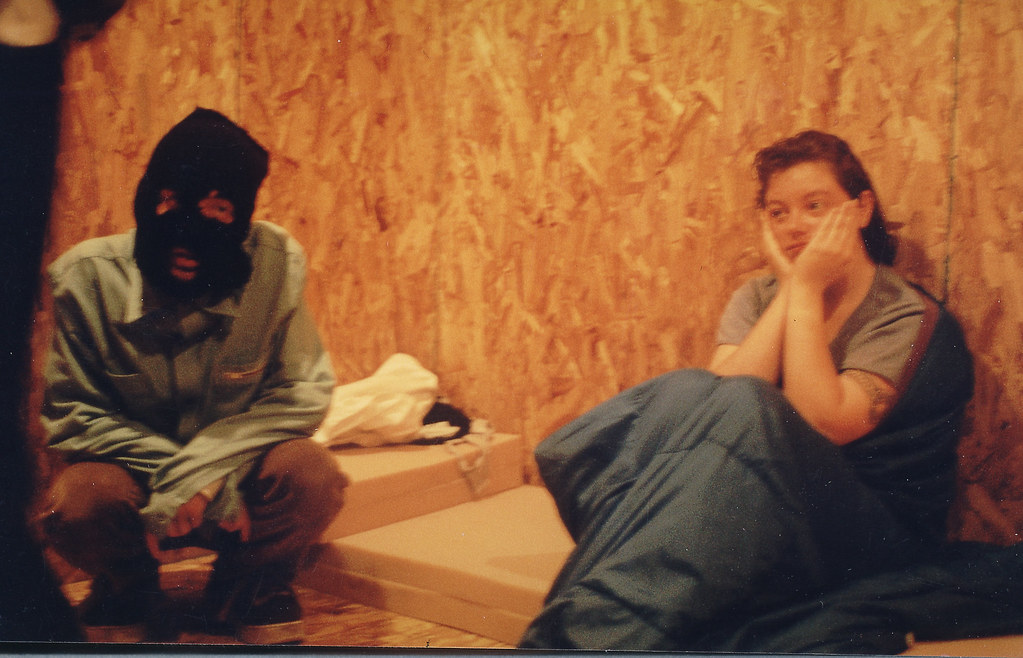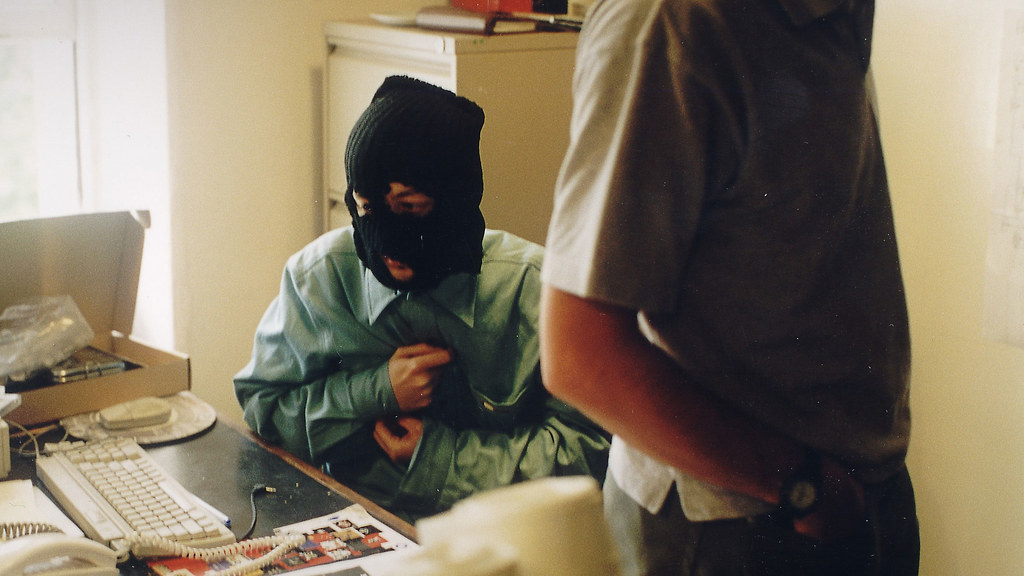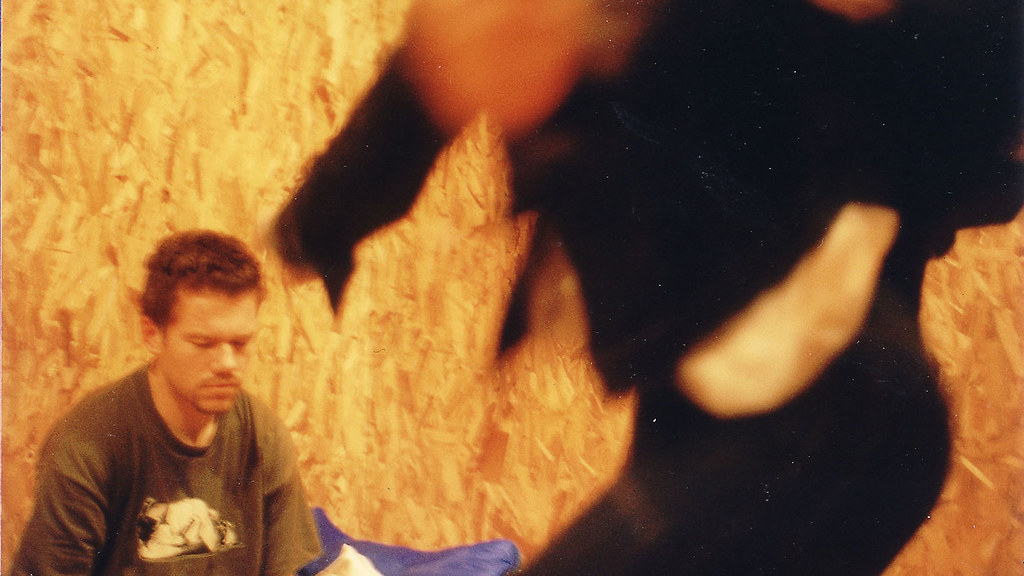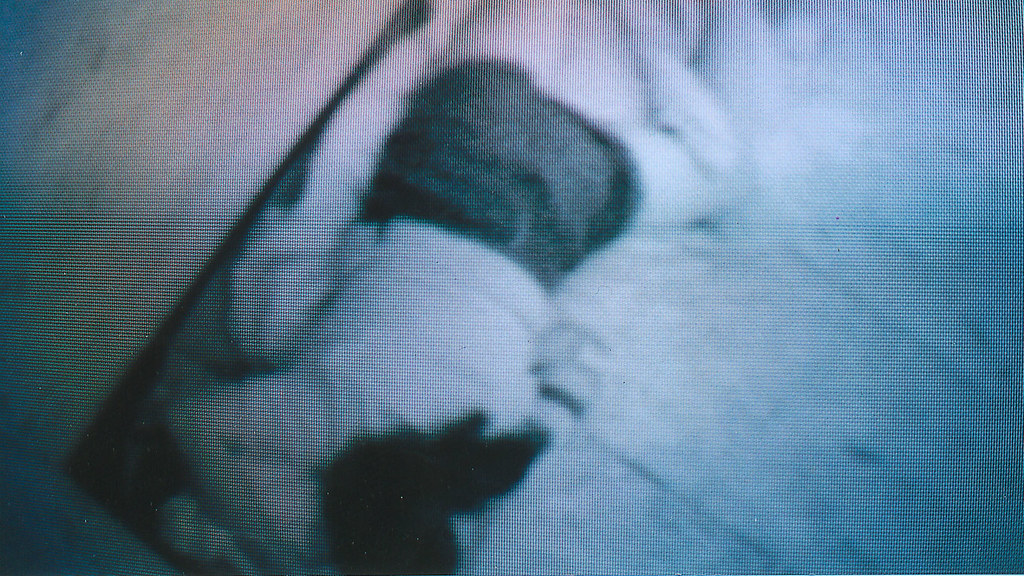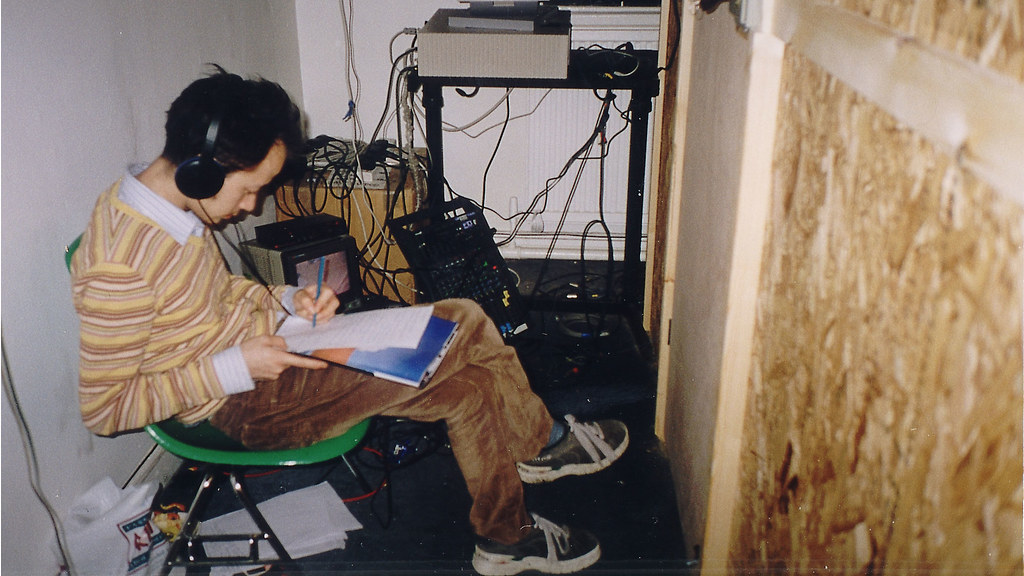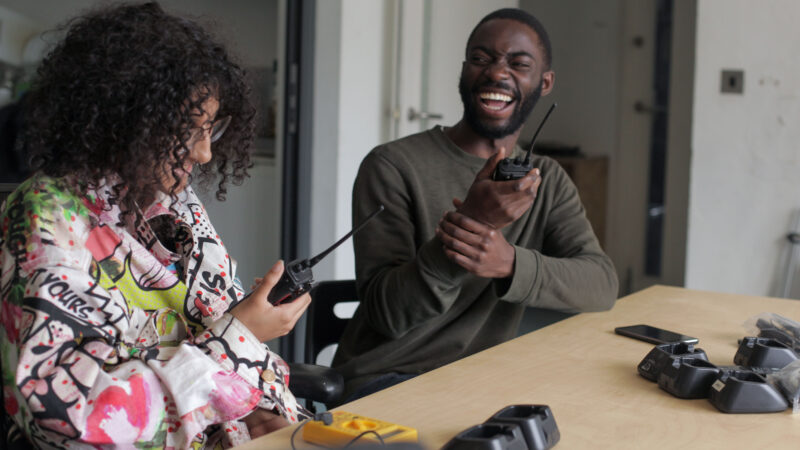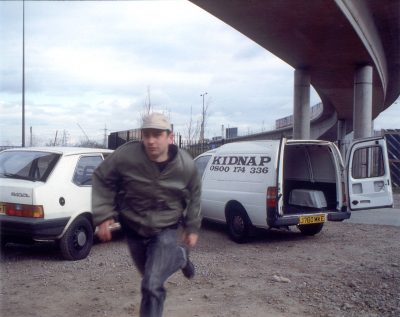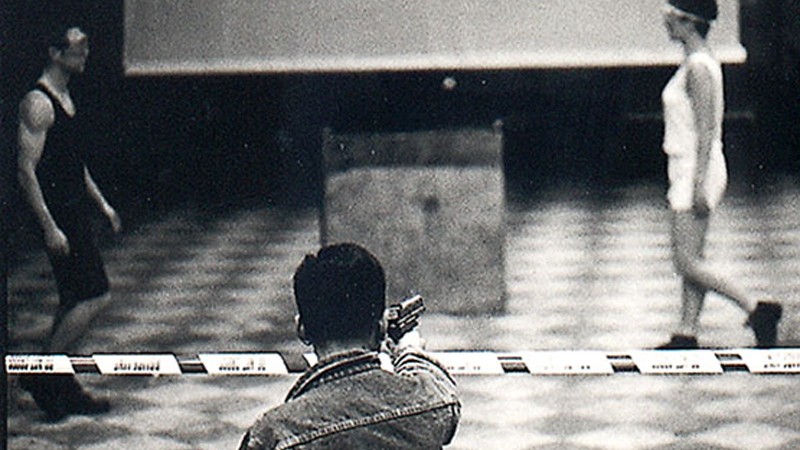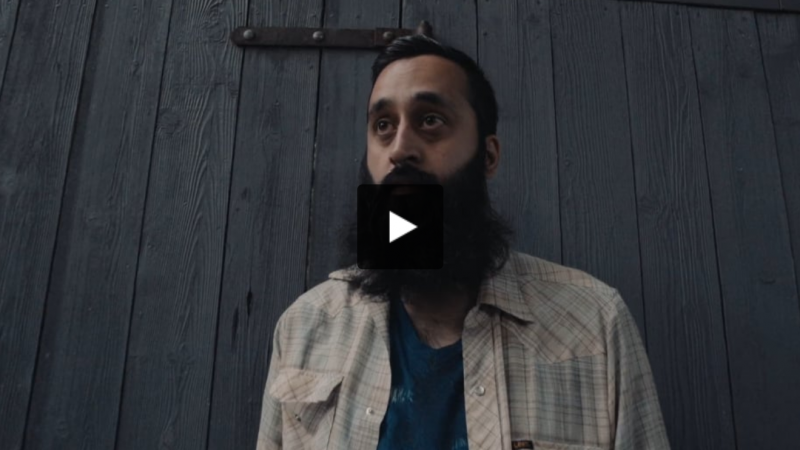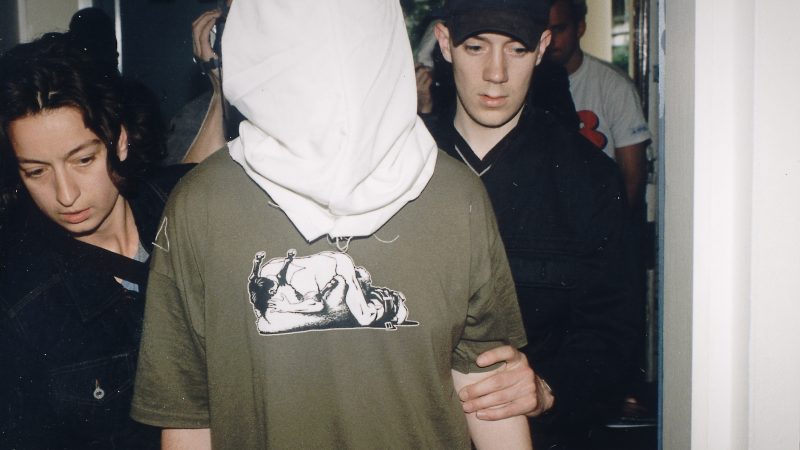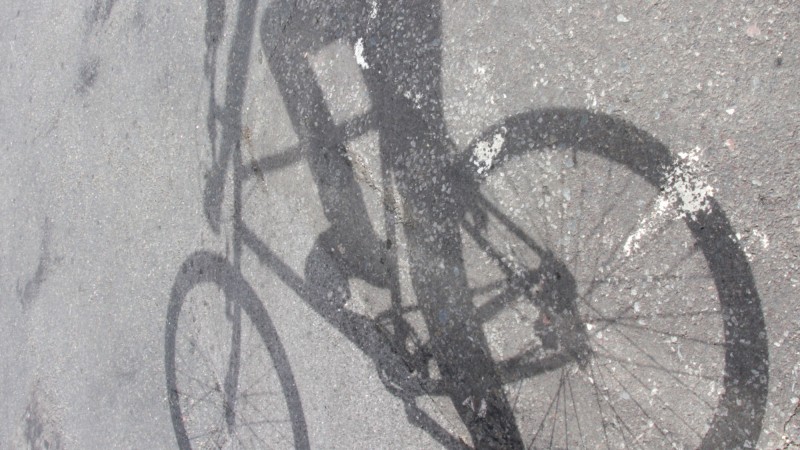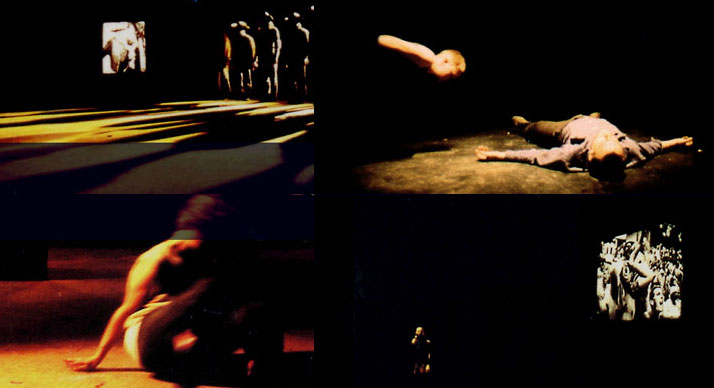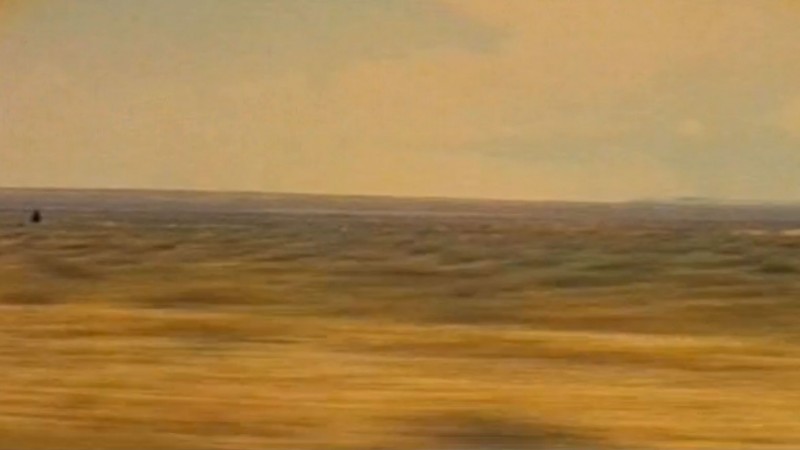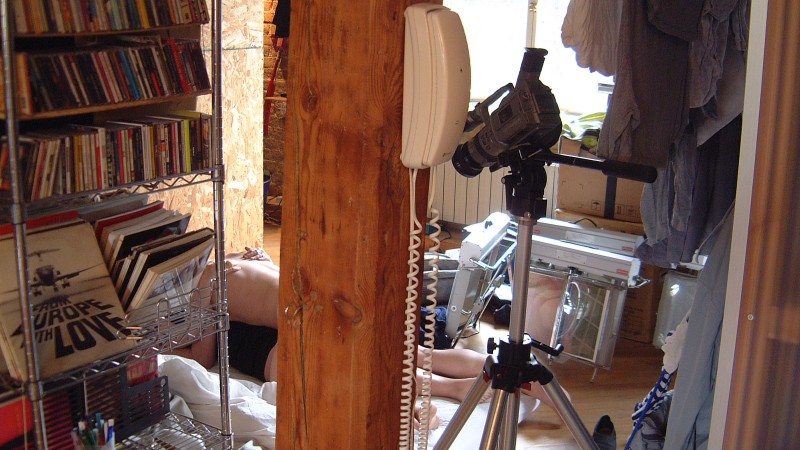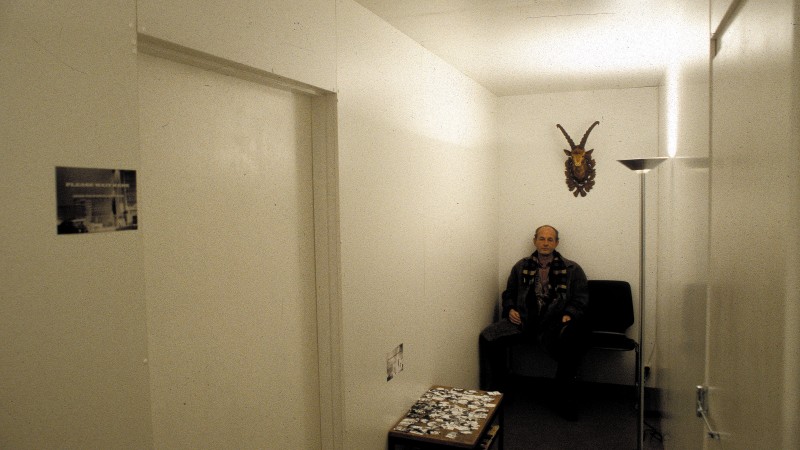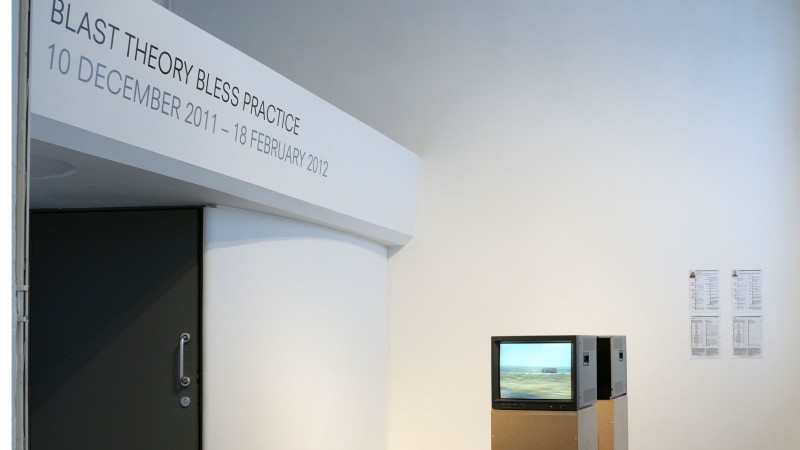Entrants paid £10 to enter a lottery in the hope of being kidnapped. Ten finalists were chosen at random and put under surveillance. Two winners - Debra Burgess, a 27 year old Australian working as a temp and Russell Ward, a 19 year old from Southend working in a 24 hour convenience store - were snatched in broad daylight and taken to a secret location for 48 hours. The process was broadcast live onto the internet. Online visitors were able to control a video camera inside the safehouse and communicate live with the kidnappers. During the run up to Kidnap, a 45 second video Blipvert was shown at cinemas around the UK.

Kidnap, a work about control and consent, was inspired by the notorious Spanner Trial in which consenting sadomasochists were convicted and sent to prison.
The project launched to the press and public on 15 May 1998 and registration was open to any resident of England and Wales. Each entrant paid a fee of £10 and filled out a detailed registration form explaining the process and signed a disclaimer. The form included details of where the entrant lived, where they worked, how they travelled and the type of clothes they wore as well as requesting a current photo of the entrant. Each entrant chose a safe word allowing them to end their participation in Kidnap at any time.
The form also had options where the entrant could modify their kidnap – for example, by paying a small supplement they could choose to have 20 cigarettes during their kidnap or to be given access to one piece of music.
When registration closed 10 entrants were picked at random and put under surveillance. We found each of the entrants and photographed them going about their daily lives over a two week period. The first any of the ten knew about this was when they received a brown envelope by post with the resulting photos in it.
Next two of the 10 were selected – again at random – for actual kidnapping. Two teams, consisted of a driver and three kidnappers, were sent to each kidnap. The support team had a video maker, a photographer and a liaison officer. The liaison officer talked to any members of the public and explained the situation. The police were informed in advance.
In the early evening of Tuesday 14 July a kidnap team and a support team travelled to a pub in West London and kidnapped Debra. The following morning the two teams, accompanied by a film crew, arrived in Southend and engaged in a lengthy game of cat and mouse with Russell. Eventually a work colleague helped trick Russell into leaving his house and he was kidnapped as he got into a car.
The winners were held in a purpose-built room at a secret location until the morning of Friday 17 July. During that time they were fed and cared for by the kidnappers. The process was monitored by a psychologist. A pan tilt zoom camera streamed audio and video to the website and to a dedicated space in Manchester site as part of Digital Summer. Russell ordered a piece of music – Nowhere to Run by Martha and the Vandellas – and at dawn on 17 July the kidnappers played the music and danced for him.
Either winner was eligible for a further prize of £500 if they managed to escape, reach a telephone and call a designated number – neither managed.
Following a 90-minute drive the two winners were released at a press conference at the Institute of Contemporary Art in London. The project was covered by BBC News 24, Channel 5 Exclusive, Channel 4 News, ITN London Tonight, Channel 5 News, The Sunday Independent, Daily Sport, Dazed and Confused, Skin Two, Greater London Radio, Sunday Times, The Independent, The Guardian, Esquire, Time Out, The Big Issue, Sky, The Spectator, The Sunday Telegraph and The Daily Telegraph.
A 30-minute film of the project was premiered at The Green Room in Manchester in September 1998. The project was made possible through the sponsorship of clothes company Firetrap who also distributed 10,000 application forms through their outlets.
Artists’ Note
Blast Theory, 1997
The Ideas
Last year (1996) there were 1421 kidnappings in Britain, a 700% increase in the last decade. As well as highlighting a current phenomenon Kidnap is about control and consent, the media, theatre and lottery culture. It is a conceptual act, a perversity and a psychological investigation.
Control and consent
The project invites entrants to hand over their lives to strangers for two days. It asks for an act of trust, of abandonment, for faith in the unknown. The psychological bond between kidnappers and their victims is well documented by the Stockholm Syndrome and cases such as that of Patty Hearst. This project will raise this relationship to a new level: one of mutuality, a shared fantasy. The winners may pretend that they are in a real kidnap packed with drama or they may approach their 48 hour trip in a matter-of-fact way, openly acknowledging that a kidnap without coercion is in fact merely a holiday with bells and whistles. The level of make believe is in the hands of the two winners and will be arrived at by some kind of negotiation between them.
All of this also raises issues of consent. In the context of the Spanner Trial, is it possible to consent to an illegal act against you? Kidnap does not – in the strict sense of the definition – even involve a kidnap at all. In a world in which any form of risk is routinely legislated away, where does this project stand: an adventure weekend or an irresponsible abuse of the gullible? After extensive consultations with legal firm Harbottle & Lewis about every aspect of the project we are satisfied that Kidnap is both legal and ethical. It should not perhaps need confirming that Blast Theory is passionately convinced in the rights of adults to consent to a project of this kind.
Media
This project is designed to highlight and to some extent expose the workings of the media in Britain. It is our working assumption that any thorny problems of morality will not hinder media outlets from covering this event. In fact, if we do our job properly we expect them to cover Kidnap in large numbers. The key question will be: how will they cover it? As a wacky human interest story, as art event or as news story? Will it be condemned, condoned or merely reported? What space is there for this kind of unclassifiable activity in the media? Our aim will be to keep all readings as open as possible. We will closely follow the media coverage and respond to it. The fact that we – the tail – will almost certainly be unable to wag the dog is a fate we are prepared for.
A further irony is that Blast Theory itself will be mediating the experience of the winners. The group will, in effect, create a low tech TV station for 48 hours. Problems of distortion and representation will confront us directly.
Media coverage will fulfil other functions. It will give Kidnap a conceptual function: no one who hears about it will be unchanged by it. They will surely ask who would do such a thing? Why? To most people both kidnapper and kidnappee will seem crazy. But perhaps it will also set off secret chains of thoughts in their minds: what would I give to leave everything behind for a couple of days? They will perhaps be quite attracted to handing someone else responsibility for their life for a short while under very specific conditions. And perhaps one in a thousand might even register. This seeming perversity, an inversion of all normal values, might just set someone onto a different path in life.
Lottery culture
In lottery-mad Britain we have already started to see the possible ironies of winning and Kidnap will also niggle away at those doubts. Who is the winner in this scenario and what have they won? Will the person who is kidnapped be ecstatic that they have been chosen or actually terrified by a proposition that they never thought would become a reality? Will their fame or notoriety become a source of joy to them or a headache?
Theatre
Kidnap is also a performance, a piece of theatre. This is a play with several acts but with improvised scenes and an unknown ending. It is a drama where you pay for the chance to play the lead role. And it is a performance both for the media and for the winners. Those kidnapping will play their roles but will those who have been kidnapped? Perhaps those shortlisted will rehearse for the big moment, practicing being kidnapped in a number of ways. Perhaps they will hone their performances for the most captive audience anyone will ever have: the kidnappers.
The theatricality will be maximised even further by the fact that each entrant will be able to specify a scenario that they would like enacted. They will be able to choose different types of kidnaps that they would like to experience from Son/Daughter Of A Millionaire through to Story At Bedtime. Furthermore Kidnap will be a Pinteresque drama: two strangers find themselves in a locked room for 48 hours. We will document the resulting script.
Voyeurism
Kidnap is an exercise in voyeurism and surveillance. The kidnappers are being paid by the entrants to watch them, monitor them and track them. But the kidnappers will also do some voyeurism all of their own. They will crouch in silence watching the winners through two way mirrors. Are the winners OK? How are they getting on with each other? This voyeurism will be extended via the website and the remote site to the world at large. We all like to be the centre of attention: the two winners of Kidnap will have an international audience.
Psychological Investigation
The resulting audio and video tapes will also be a record of an experiment in human interaction with sociological and psychological resonances. As in the work of Sophie Calle in which she followed strangers or employed people to follow her, a strange form of coexistence will develop. In this symbiotic state the winners have given themselves over to the kidnappers and are thus free of self determination. And at the same time the kidnappers have also given up their freedom to the winners. For they are dependent on the winners for the outcome; they can only watch and wait to see what happens.
Finally Kidnap will be a great adventure, a step into the unknown, a chance for two people to have a once in a lifetime experience.
